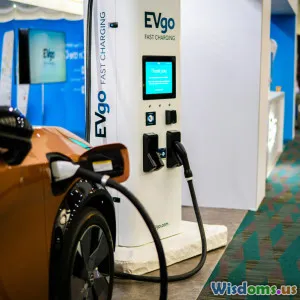
Tech Driven Approaches to Waste Management
6 min read Explore innovative tech solutions transforming waste management and promoting sustainability in our communities. (0 Reviews)
Tech Driven Approaches to Waste Management
Introduction
In an era defined by rapid urbanization and increasing population density, the challenge of waste management has become more pressing than ever. Traditional methods of waste disposal are proving to be inadequate, leading to environmental degradation and health hazards. Fortunately, technology is stepping in to revolutionize waste management practices, making them more efficient, sustainable, and eco-friendly. This article explores various tech-driven approaches that are transforming the waste management landscape.
The Role of Smart Technologies
1. Smart Bins
Smart bins are equipped with sensors that monitor the level of waste inside them. These sensors send alerts to waste management companies when the bins are nearing capacity, optimizing collection routes and schedules. For example, cities like San Francisco have implemented smart bins that reduce unnecessary collections, saving time and fuel while decreasing emissions.
2. IoT Integration
The Internet of Things (IoT) plays a crucial role in waste management by enabling real-time data collection and analysis. IoT sensors can track the types of waste disposed of in different areas, helping cities design better waste management strategies. By analyzing this data, municipalities can determine which materials are most frequently discarded and enhance recycling efforts accordingly.
AI and Machine Learning in Recycling
3. AI Sorting Systems
Artificial intelligence is revolutionizing recycling processes by improving sorting accuracy. Advanced AI-powered sorting systems can analyze images of waste and identify materials with remarkable precision. For example, companies like AMP Robotics utilize AI to sort recyclables from waste streams, significantly increasing recycling rates and reducing contamination. This technology not only saves time but also ensures that more materials are recycled effectively, contributing to a circular economy.
4. Predictive Analytics
Machine learning algorithms can predict future waste generation patterns based on historical data. This foresight allows waste management companies to allocate resources more efficiently, ensuring that they are prepared for fluctuations in waste production. For instance, cities that experience seasonal tourism can utilize predictive analytics to bolster waste collection during peak times, minimizing overflow and maintaining cleanliness.
Waste Tracking and Management Apps
5. Mobile Applications
Various mobile applications are emerging to help individuals and businesses manage their waste responsibly. Apps like “Waste Management” provide users with information on local recycling guidelines, collection schedules, and even allow users to schedule bulk waste pickups. These platforms empower communities to participate actively in waste reduction and recycling efforts, fostering a culture of sustainability.
6. Gamification
Innovative apps are incorporating gamification elements to engage users in waste management initiatives. By rewarding users for recycling efforts and proper waste disposal, these applications create a fun and interactive experience. For example, platforms like “Recyclebank” offer points and rewards for recycling, promoting healthy competition among users and enhancing community involvement.
The Future of Tech-Driven Waste Management
7. Blockchain for Transparency
Blockchain technology is beginning to find applications in waste management by providing transparent tracking of waste from collection to disposal. This can ensure that recyclable materials are not diverted to landfills and that waste is processed correctly. Companies can use blockchain to monitor their waste management practices, thereby increasing accountability and trust among consumers.
8. Robotics in Waste Collection
Robotic solutions are being developed to assist in waste collection and sorting. Autonomous waste collection vehicles can navigate urban environments, reducing the need for human drivers and improving efficiency. Additionally, robots can be used in recycling facilities to handle hazardous materials, ensuring worker safety while improving processing speed.
Conclusion
Tech-driven approaches to waste management are reshaping how communities tackle waste disposal and recycling. From smart bins and AI sorting systems to mobile applications and blockchain technology, these innovations are enhancing efficiency and promoting sustainability. As technology continues to evolve, the potential for smarter waste management practices will only grow, paving the way for a cleaner, greener future. Embracing these advancements is crucial for individuals, businesses, and governments alike in the quest for sustainable living and environmental stewardship.
By adopting these tech-driven solutions, we can all play a part in reducing waste, conserving resources, and protecting our planet for future generations.
Rate the Post
User Reviews
Popular Posts





















